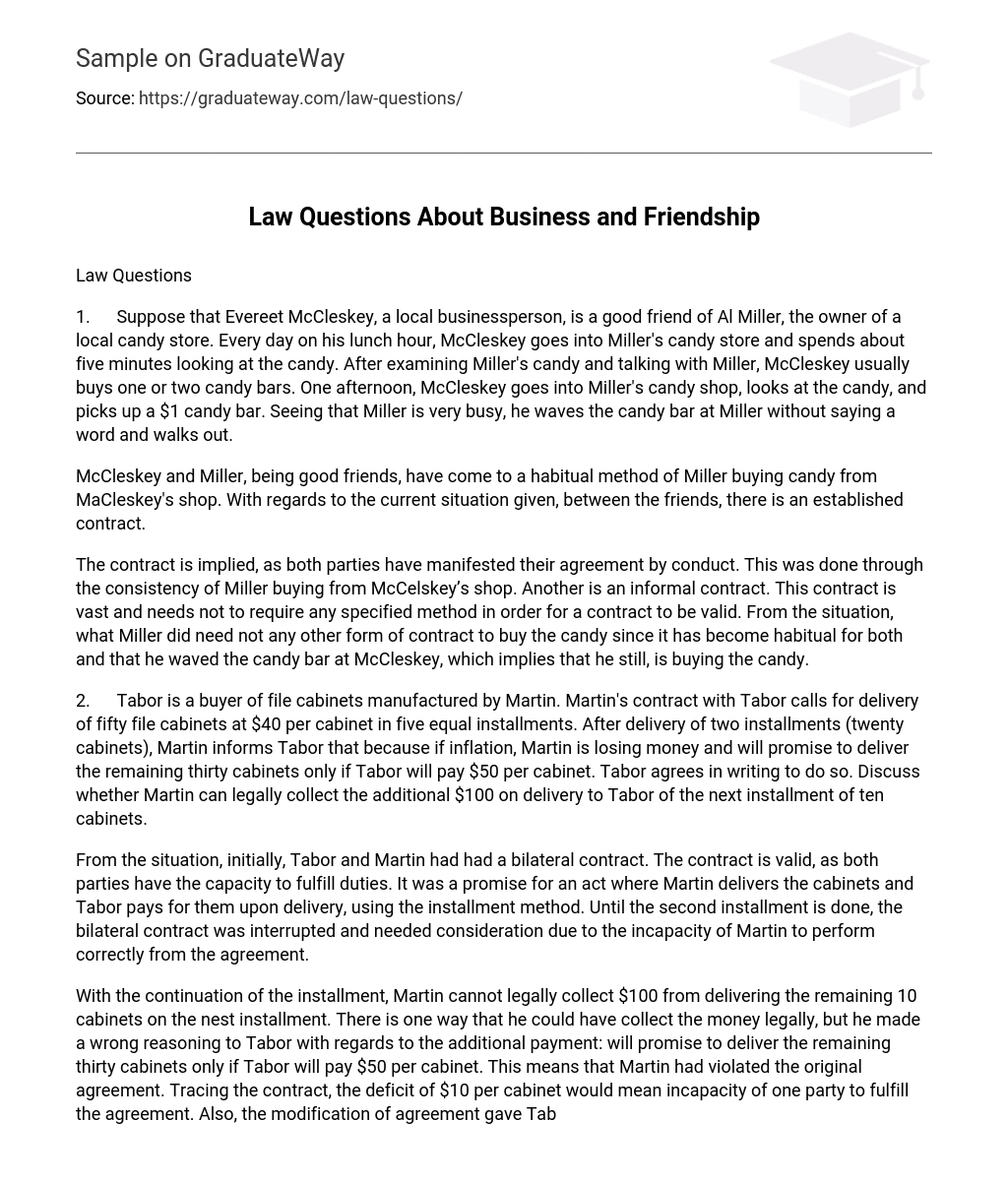Law Questions
1. Suppose that Evereet McCleskey, a local businessperson, is a good friend of Al Miller, the owner of a local candy store. Every day on his lunch hour, McCleskey goes into Miller’s candy store and spends about five minutes looking at the candy. After examining Miller’s candy and talking with Miller, McCleskey usually buys one or two candy bars. One afternoon, McCleskey goes into Miller’s candy shop, looks at the candy, and picks up a $1 candy bar. Seeing that Miller is very busy, he waves the candy bar at Miller without saying a word and walks out.
McCleskey and Miller, being good friends, have come to a habitual method of Miller buying candy from MaCleskey’s shop. With regards to the current situation given, between the friends, there is an established contract.
The contract is implied, as both parties have manifested their agreement by conduct. This was done through the consistency of Miller buying from McCelskey’s shop. Another is an informal contract. This contract is vast and needs not to require any specified method in order for a contract to be valid. From the situation, what Miller did need not any other form of contract to buy the candy since it has become habitual for both and that he waved the candy bar at McCleskey, which implies that he still, is buying the candy.
2. Tabor is a buyer of file cabinets manufactured by Martin. Martin’s contract with Tabor calls for delivery of fifty file cabinets at $40 per cabinet in five equal installments. After delivery of two installments (twenty cabinets), Martin informs Tabor that because if inflation, Martin is losing money and will promise to deliver the remaining thirty cabinets only if Tabor will pay $50 per cabinet. Tabor agrees in writing to do so. Discuss whether Martin can legally collect the additional $100 on delivery to Tabor of the next installment of ten cabinets.
From the situation, initially, Tabor and Martin had had a bilateral contract. The contract is valid, as both parties have the capacity to fulfill duties. It was a promise for an act where Martin delivers the cabinets and Tabor pays for them upon delivery, using the installment method. Until the second installment is done, the bilateral contract was interrupted and needed consideration due to the incapacity of Martin to perform correctly from the agreement.
With the continuation of the installment, Martin cannot legally collect $100 from delivering the remaining 10 cabinets on the nest installment. There is one way that he could have collect the money legally, but he made a wrong reasoning to Tabor with regards to the additional payment: will promise to deliver the remaining thirty cabinets only if Tabor will pay $50 per cabinet. This means that Martin had violated the original agreement. Tracing the contract, the deficit of $10 per cabinet would mean incapacity of one party to fulfill the agreement. Also, the modification of agreement gave Tabor no choice to have his cabinets delivered due to Tabor’s statement only if Tabor will pay $50 per cabinet.





